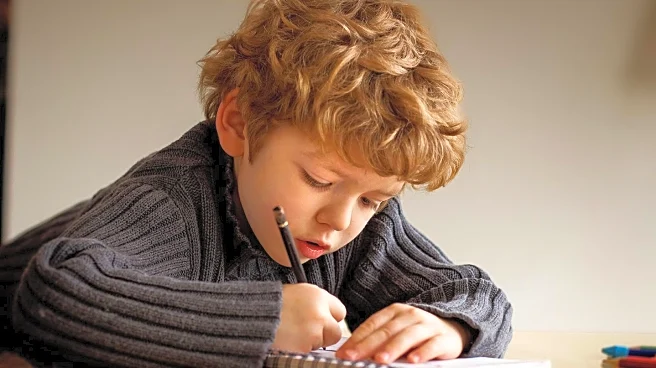What's Happening?
Unschooling, a form of homeschooling that emphasizes child-led learning without formal curriculum, is gaining popularity as parents question traditional education systems. While some view it as a way to foster creativity and self-awareness, others criticize
it as educational neglect. Former unschooled students share mixed experiences, highlighting the challenges and benefits of this approach.
Why It's Important?
The unschooling movement reflects broader concerns about the effectiveness of traditional education and the desire for personalized learning experiences. It raises questions about the role of formal education in fostering critical thinking and adaptability. As more families explore alternative education models, unschooling could influence public policy and educational reform, prompting discussions on the balance between structure and freedom in learning.
Beyond the Headlines
Unschooling challenges conventional notions of education, inviting exploration of how learning can be tailored to individual needs and interests. It highlights the importance of parental involvement and the potential for innovative teaching methods to address diverse learning styles. The movement also raises ethical considerations about the responsibility of educators and parents in ensuring comprehensive education.















